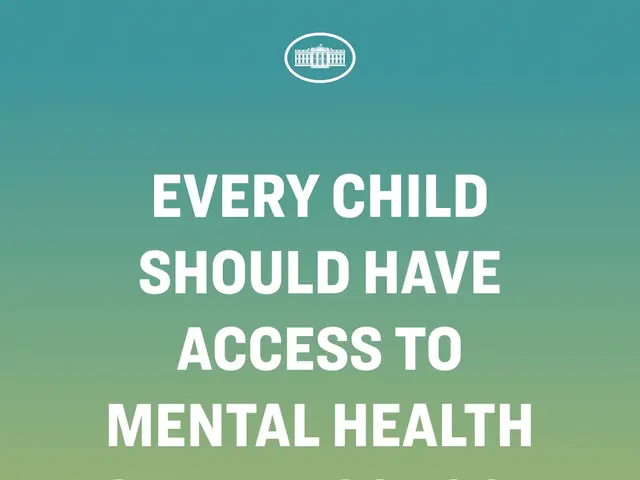Uncovering Undetected Academic Struggles: A Guide
Identifying and addressing hidden learning challenges in both children and adults is essential for unlocking their full potential. These difficulties, often masked by intelligence, can lead to misunderstandings and missed opportunities if left unchecked.
This comprehensive guide will highlight the signs and symptoms of hidden learning challenges and provide parents and educators with the tools they need to recognize and help those in need.
Learning difficulties can vary in nature and severity, affecting a person's ability to focus, process information, and learn effectively. According to statistics, about 4 million kids and teens experience these challenges, which can impact their academic performance, work, and self-esteem.
Some common signs to watch for include trouble following instructions, reading, writing, and mathematical problems, issues with short-term memory, and problems with organization. Additionally, visual, motor, and social skills may also be affected.
Learning difficulties can deeply impact daily life, causing feelings of frustration, anxiety, and even anger. Recognizing these signs early is crucial, as early intervention can provide the right support and strategies for individuals to reach their full potential.
Many people with learning difficulties employ coping mechanisms to hide their struggles. These adaptive behaviors are often influenced by their intelligence, allowing them to appear smarter than they actually are. Masking can be mentally exhausting and puts a strain on mental health. This guide will help you identify these strategies and find ways to assist those with hidden learning challenges.
Masking is not exclusive to autism or ADHD; it is common among those with mental health issues. Autistic women, in particular, are at risk of being overlooked as their behaviors can seem like those of non-autistic people.
Understanding the reasons behind masking is key to effective identification, allowing parents and educators to recognize the subtle signs and symptoms of hidden learning challenges. Some individuals may use verbal deflection tactics, behavioral patterns like procrastination, or social compensation methods to conceal their difficulties.
Seeking professional assessment and utilizing support systems are essential for addressing hidden learning challenges effectively. A proper assessment will help determine the nature of the learning difficulty and provide tailored strategies for improvement. By addressing these challenges early, individuals can achieve academic and personal success.
If you suspect that you or someone you know may be struggling with a hidden learning challenge, take action today. Seek out a professional assessment, utilize supportive resources, and remember that with the right help, there is always hope for a brighter future.
Sources:
- "How to Recognise when Someone is Hiding a Learning Difficulty - Hummingbird Learning Centre"
- "When A Hidden Learning Disability Holds You Back"
- "Learning Difficulties"
- "Early Warning Signs of Learning Disabilities"
- "When Hiding Emotions Becomes Harmful aka Masking"
- "Autistic people and masking"
- "Mental Health Masking: What It Means and How to Recognize It"
- "Healthy coping mechanisms and strategies | Thriveworks"
- "Healthy vs. Unhealthy Coping Mechanisms"
- "Healthy Coping Skills for Uncomfortable Emotions"
- "How to Help a Child with a Learning Disability"
- "Social Challenges of Kids With Learning Problems - Child Mind Institute"
- "Uncertainty - Unstuck Minds"
- "How to Increase Your Tolerance for Uncertainty and Let Go of Reassurance-Seeking Patterns [Episode 908] | Solluna by Kimberly Snyder"
- "The Skill-Building Lens: Helping Students with Behavior Challenges"
- "Strategies for Getting and Keeping the Brain's Attention"
- "Deliberately difficult - why it's better to make learning harder"
- "A Possible Neural Mechanism of Intentional Forgetting"
- "Examples of Confabulation in Psychology"
- "PDF"
- "To What Extent Could Professionals Accept What is Really Challenging about Challenging Behavior"
- "Non-cognitive skills: The hidden key to academic success"
- "Executive Functioning Skills: The Hidden Key to Academic Success"
- "Frontiers | Understanding Difficulties and Resulting Confusion in Learning: An Integrative Review"
- "The Hidden Curriculum: What You Need to Know About Its Impact on Behavior"
- "Unraveling the Maze: Adult Dyslexia and the Hidden Challenges in the Workplace"
- "How Adult Insecurities Slow Down Children's Learning - Bury's No 1 Science & Consciousness College"
- "Psychoeducational Assessments - Learning Disability Testing"
- "Specialized Programs for Students with Disabilities"
- "Gifted Children with Learning Disabilities: A Review of the Issues"
- "About NCLD - National Center for Learning Disabilities"
- "LD Information - LDANJ Learning Disabilities Association of New Jersey"
- "Undivided - Support for Parents by Parents who Understand"
- "Creating a positive learning environment | Coursebox AI"
- "10 Ways Teachers Can Create a Positive Learning Environment"
- "3 Ways to Harness the Hidden Curriculum"
- "The Hidden Struggles of Students: Understanding and Addressing Learning Difficulties • DepEd Tambayan"
- Positive parenting and social skills are crucial in helping children with hidden learning challenges manage their behavior and thrive, especially when dealing with academic difficulties such as trouble following instructions ororganization problems.
- Incorporating teaching methods centered on health-and-wellness and mental-health awareness can significantly aid individuals in overcoming learning challenges by addressing the root causes of stress, anxiety, or frustration, enhancing overall academic performance.
- By recognizing the importance of science in understanding the brain's functions and the role it plays in learning challenges, educators and parents can apply the latest research findings to tailor personalized learning strategies and plans, ultimately leading to improved mental health and academic growth.







